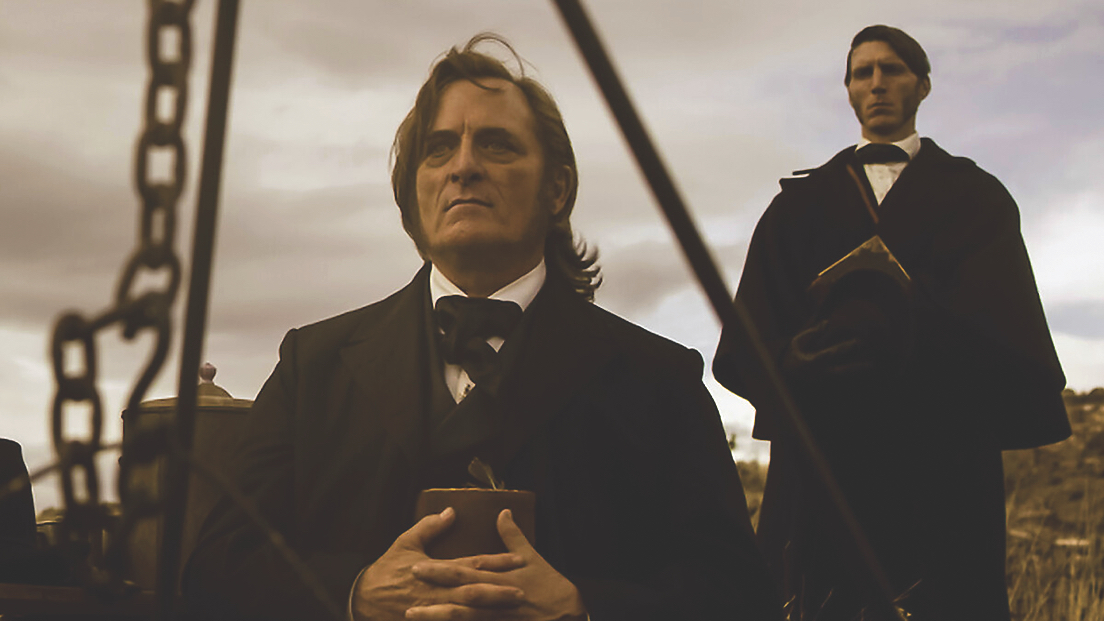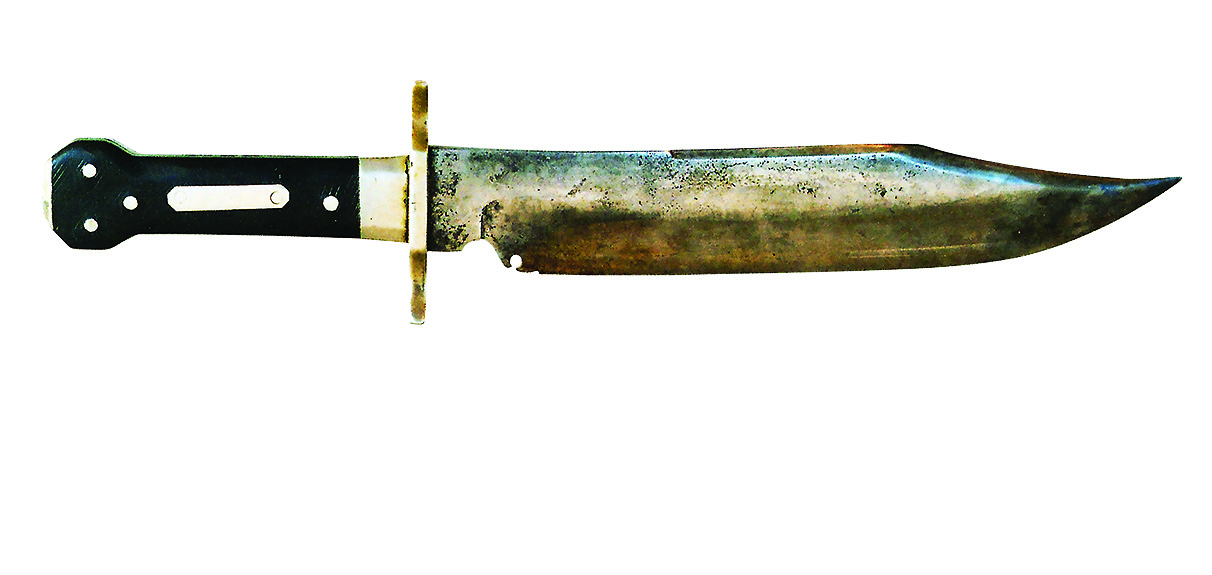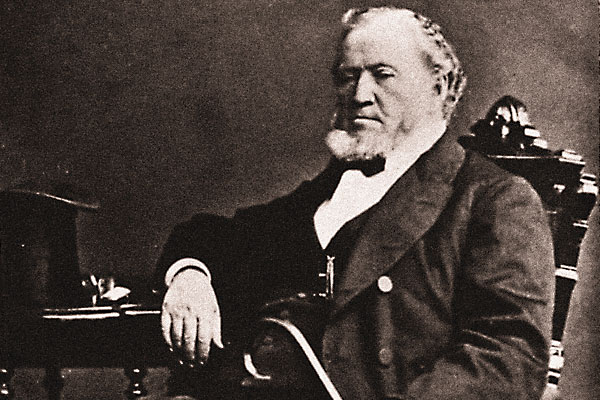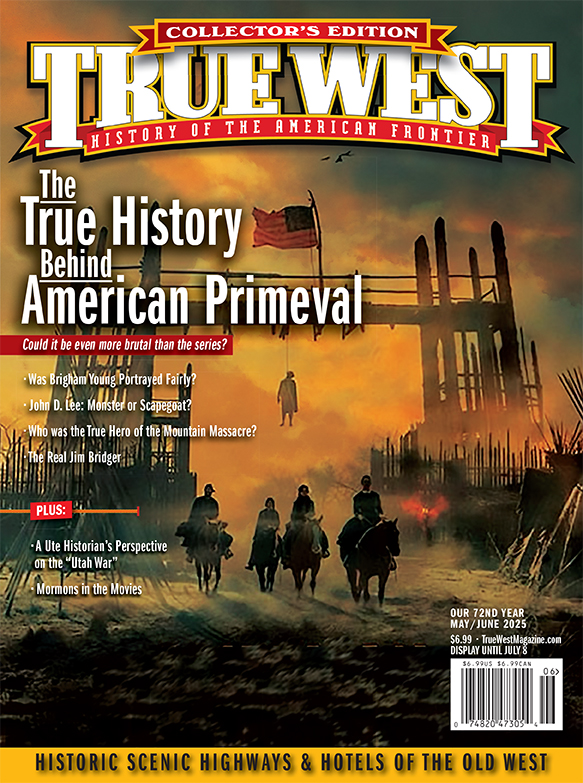Making peace with a violent past
Our readers remind us of the variables and vagaries of historic truths, “well-established” facts, headlines and historical photographs.
American Primeval—painfully realistic
American Primeval does a painfully realistic job of portraying some aspects of life in the real West, but it Hollywoodizes too much for the sake of audience, especially with the characters. From a historical perspective, the main sin is portraying the Mountain Meadows Massacre as being anywhere near Fort Bridger. They probably did a good job of portraying Fort Bridger, and the tensions of the time between the U.S. and the LDS is a worthy lesson in U.S. history. The beauty and the roughness of the raw landscape is overwhelming. The Native American depictions are great. But that opening train station at the end of the tracks is so far off reality it can’t possibly be confused with St. Joseph, Missouri, which sets off doubts. And she’s still running around weeks later in the snow in the same hoop skirt? I guess our appreciation that the popularity of this show is garnering more public awareness and appreciation of life in the pioneer West will just have to outweigh any criticisms of historical detail. Perhaps it will generate questions, which will give you and other historians opportunities to respond. —John Krizek Prescott, Arizona
An Uninformed Perspective
As a proud member of the Writers Guild of America, I participated in and helped to organize strikes against productions filming in the Santa Fe, New Mexico, area in the summer and fall of 2023. Despite what emerged as its rather uninformed perspective on Indigenous history, American Primeval took advantage of our state’s generous production rebate to shoot on reservation land, off-limits to strikers. Occasionally, however, the producers would slip their leash and venture onto public lands. Informed of a planned shoot late in production on the storied Bonanza Creek Ranch south of Santa Fe, I was able to summon a small posse of New Mexico-based guild members who successfully blocked the gates and prohibited filming—not only for that day, but for the remainder of production, which shut down pending resolution of the labor dispute. Word later filtered back to me that the company utilized the shutdown to fine-tune the scripts when production inevitably resumed. Sad to say, I saw no evidence of that in the finished series. As someone who’s spent his career in the realm of dramatic history (Into the West, John Adams, Franklin), I was appalled by the lack of even glancing fidelity to the actual occurrences. At least the slights were equal opportunity: Mormons, settlers, Natives and women alike are all maligned and misrepresented. Should I, as a what’s now known as “content creator,” begrudge a show—a period piece, and a “Western,” no less—that’s garnered over 27 million viewers? My answer is: Hell, yes. The failure of American Primeval is that, while its creators continue (on Joe Rogan podcasts and elsewhere) to proclaim their shocking uncovering of the West’s violent history, the show itself does nothing but recycle tropes familiar to anyone who saw AMC’s Hell on Wheels series. I’m told the next installment in the anthology will center on Custer and the Greasy Grass. Can’t wait! —Kirk Ellis New Mexico
The Biggest Knife in Texas
The March/April issue of True West could be called “the Texas issue,” as it covers the prelude to the Alamo and the incredible saga of Charlie Goodnight. These huge, Texas-size stories feature such legendary characters as William Travis, Stephen Austin, Sam Houston, Davy Crockett and Jim Bowie. The latter is brandishing a formidable Bowie knife in a dramatic accompanying Bob Boze Bell illustration. Jim Bowie had the biggest knife in Texas, just as Charlie Goodnight had the biggest ranch in the state. This larger-than-life legend did it all. During his long life, Goodnight was a Texas Ranger, scout, Indian fighter, farmer, rancher and inventor of the chuck wagon. About all that’s missing is oil man. It’s no wonder that Charlie Goodnight was the inspiration for Woodrow McCall in Larry McMurty’s Lonesome Dove. Like Gus, Charlie never needed a compass because he was
never lost. —Paul Hoylen Deming, New Mexico






